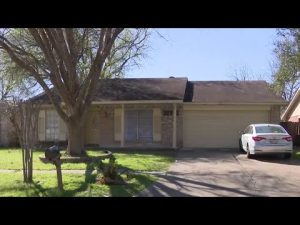Landlord Says He Didn’t Know Tenant Was Renting Out Rooms Where 9 People Were Found Malnourished
In light of recent events in Fort Bend County, where a landlord found themselves entangled in legal proceedings due to tenants running an unpermitted boarding home, it’s imperative for property owners and landlords to grasp the legal ramifications associated with such arrangements.
Landlord Says He Didn’t Know Tenant Was Renting Out Rooms Where 9 People Were Found Malnourished
The Fort Bend County Incident: A Cautionary Tale
The incident in Fort Bend County serves as a stark reminder of the potential legal pitfalls that landlords may face when unaware of their tenants’ activities. In this case, nine individuals were discovered in a malnourished state within a boarding home operating without the requisite permits. The landlord, who claimed ignorance of the situation, found themselves under scrutiny for their lack of oversight.
Legal Requirements for Boarding Homes
Permitting Regulations
Permitting regulations vary by jurisdiction, but generally, operating a boarding home requires specific permits and compliance with zoning ordinances. These regulations are designed to ensure the safety and well-being of residents and maintain community standards.
Landlord Responsibilities
Landlords have a legal obligation to conduct due diligence when renting out their properties. This includes vetting tenants, understanding the intended use of the premises, and ensuring compliance with all relevant laws and regulations. Ignorance of tenant activities does not absolve landlords of liability.
Potential Legal Consequences
Civil Penalties
Operating an unpermitted boarding home can result in significant civil penalties, including fines and potential lawsuits from affected parties. Landlords may be held financially responsible for any harm caused to tenants or violations of local ordinances.
Criminal Charges
In severe cases, landlords may face criminal charges for knowingly allowing illegal activities to occur on their properties. This can lead to criminal convictions, imprisonment, and irreparable damage to their reputation and livelihood.
Mitigating Risk as a Landlord
To mitigate the risk of legal entanglements associated with unpermitted boarding homes, landlords should take proactive measures:
Thorough Tenant Screening
Screen potential tenants rigorously to ensure they are trustworthy and have legitimate intentions for renting the property.
Regular Property Inspections
Conduct regular inspections of rental properties to monitor for any signs of unauthorized activities or violations of lease agreements.
Familiarize Yourself with Local Regulations
Stay informed about local zoning laws, permitting requirements, and housing regulations to ensure compliance and avoid legal pitfalls.
Open Communication Channels
Maintain open lines of communication with tenants to address any concerns or issues promptly. Encourage tenants to report any unusual activities or safety hazards.
Conclusion
In conclusion, the incident in Fort Bend County underscores the importance of landlords understanding and adhering to legal requirements when renting out properties. By being proactive and vigilant, landlords can mitigate the risk of running afoul of the law and protect both their investments and their reputations.
Recent Posts
Choosing the best 80 watt soldering iron for electronics can dramatically improve your workflow, precision, and soldering quality. Whether you’re a beginner hobbyist, DIY repair enthusiast, or...
Kenya’s Deputy President Kindiki’s Luxury Cars Maybachs Raise Questions Amid Public Struggle
Corruption and inequality continue to dominate Kenya’s political landscape, leaving ordinary citizens frustrated and disenfranchised. Recently, Deputy President Kithure Kindiki made headlines after...